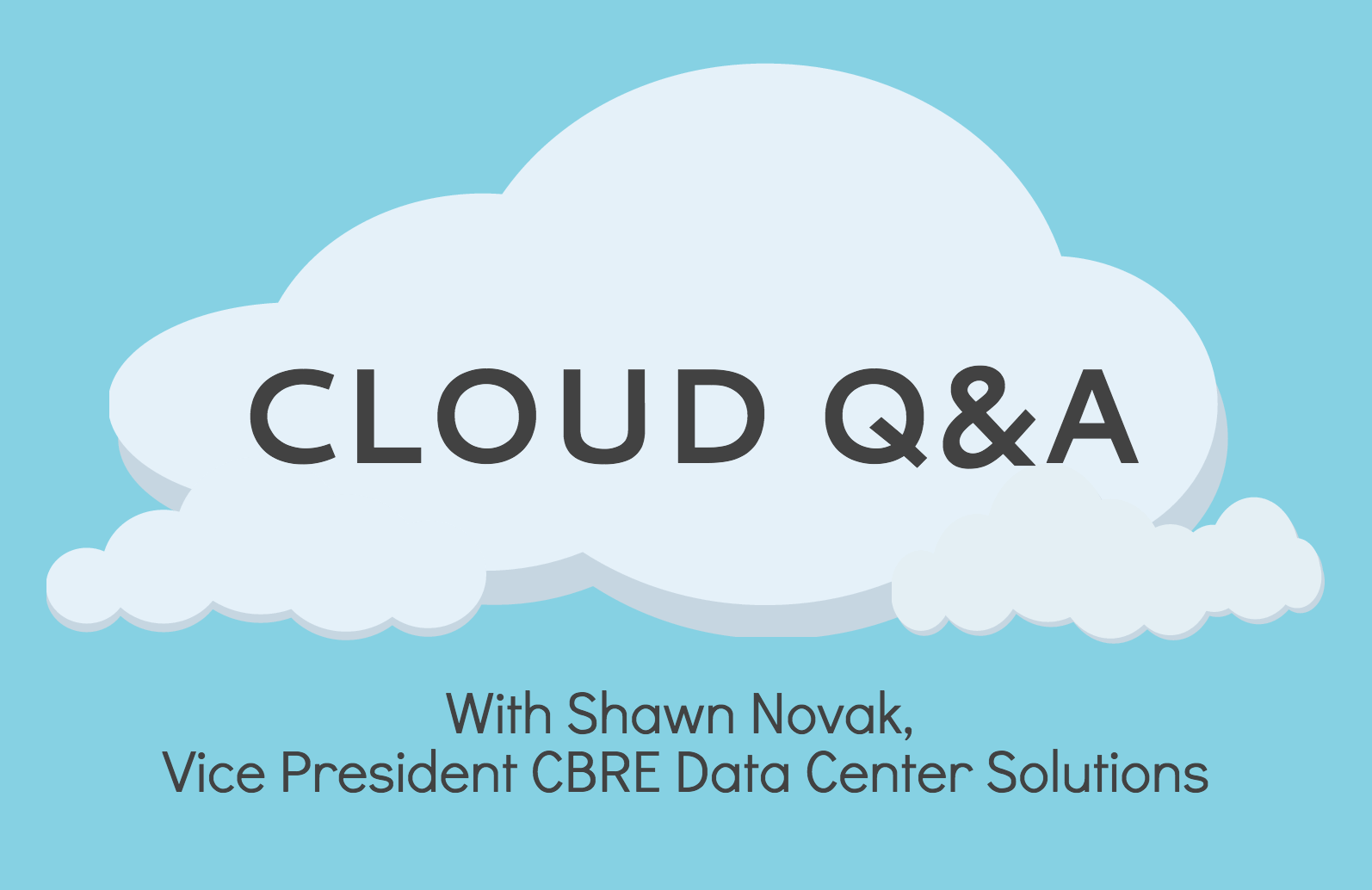By Luke Smith · 8/4/2016

Over the last few years, the data center industry has seen an incredible amount of maturation, as well as development of services offered. One of the primary factors with this evolution has been the growth in cloud technology and its widespread adoption. Competition between major cloud providers has led to some of the largest data center leases seen in the industry, with companies like Microsoft building new data centers and executing a number of large leases, some over 20 MW. The cloud is now an irreplaceable aspect of almost any data center solution, but many people still have questions about it.
We reached out to Shawn Novak to help explain how the cloud has become so popular and how it benefits businesses that utilize the technology. Shawn Novak joined CBRE in 2014 as a Vice President within CBRE’s Data Center Solutions. In his role, Shawn is responsible for leading complex consulting engagements for organizations requiring data center mission critical facilities strategies and solutions.
1. Cloud technology has existed for a while. Why has it become so mainstream in the last few years?
You are correct, “cloud” has actually been around for a long time. For years companies have run their own cloud in managed hosted environments, but the cost was much higher than what cloud providers are able to offer today. As companies become more and more efficient with their IT utilization, they are finding ways to automate and streamline the process of migrating their environment into a cloud platform. Speed to market is another factor for why cloud has become mainstream. In a traditional procurement processes, it could take weeks or months in order to get a system ready for certain applications – that doesn’t even factor in the time needed to procure data center space to support the IT equipment. With cloud, end users can go online, click a few buttons and have their applications up and running in a couple hours, all without having to procure data center space or IT environment.
2. Why do companies prefer cloud solutions over physical data centers, i.e. colocation or enterprise data centers?
Speed to market and the flexibility to ramp compute up and down without long term commitments. Many test applications are run for less than 6 months and there isn’t the business case to support housing them in an enterprise or colocation data center environment. In a traditional data center environment, the end user buys the necessary IT/App/OS and installs it at the facility where it would sit until end of life – even if it was only tested for 6 months. The beauty of the cloud is it allows companies to easily test and remove the environment when the project is complete, eliminating the physical components of setting up and shutting down a data center.
3. While most companies utilize some form of cloud technology, why do companies struggle with an all-in cloud approach?
Companies struggle with an all in approach for multiple reasons. One reason is cost, although the cost seems to be affordable at face value, depending upon the type of application, data center location, network bandwidth, duration of service and a few other key elements; the cloud may be a more expensive approach than an in house solution. Server sprawl was always an issue in the traditional data center and we are now seeing the same in the cloud. Cloud environments are being setup, but never taken down, ultimately costing companies significant amounts of money for unutilized capacity. Another reason is cloud is not a one size fits all model. Enterprises have home grown applications that just can’t be ported over to a cloud provider. The cost to re-engineer these applications wouldn’t make sense to justify having them reside on a cloud platform. Finally, security still remains a significant threat to some companies. I believe cloud providers are doing everything in their power to prevent any security issues, but companies are fearful of attacks on IT equipment that isn’t fully dedicated to them or residing in their own facilities.
4. Do you foresee cloud replacing typical data center solutions, i.e. colocation or enterprise data centers?
Cloud will remain a huge growth area for a very long time. I don’t however see cloud replacing enterprise or colocation data centers completely. In fact, I am seeing some companies who are cloud only today (they grew up in the cloud) looking for options to pull some of their environments out of the cloud and into their owned or leased data centers. Again, there is not a one size fits all approach to cloud, but conducting the right due diligence and pricing out all the available options will help determine what environments are better situated in the cloud and which should reside elsewhere.
5. One of the difficulties with cloud is an overall lack of knowledge and very technical language. What is the best way for companies unfamiliar with cloud to learn more?
Actually, there are so many different types of cloud, different cloud providers and hundreds of definitions of cloud. The best way companies are learning which cloud is the optimal fit is by working with cloud engineers and conducting test fit outs to see what products work best for their applications. There is a big push for this hybrid model where clients are migrating their environments into a cloud rich area and testing applications they currently have; finding out which ones are best suited in the cloud and with what provider.